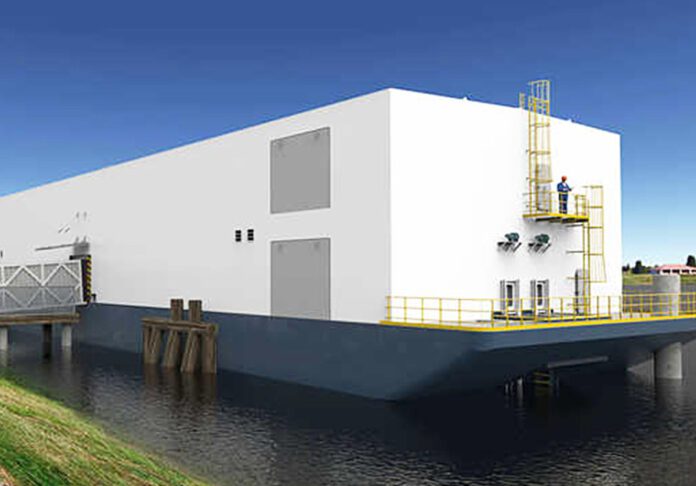
A FLOATING data centre on the River Shannon in Limerick City would be an energy vampire that could consume up to ten per cent of Limerick’s electricity demand.
That’s the view of Limerick People Before Profit representative and former councillor Cian Prendiville who said that the data centre would put the electricity supply under pressure at a time of rising energy costs in return for very few permanent jobs.
US-based Nautilus Data Technologies, which has received a $5 million investment from the Irish Strategic Investment Fund, says it hopes to deploy a new data centre into the River Shannon within the next 18 months.
When the data centre is completed it is expected to provide 25 permanent jobs.
The sister ship of this data centre moored in Stockton, California consumes 7MW of electricity, which amounts to nearly ten per cent of Limerick’s electricity projected demand, according to Eirgrid’s most recent transmission forecast.
Mr Prendiville said that the Limerick data centre is different from land-based centres in that it uses water from the Shannon to provide cooling and this reduces its operational costs.
“This throws out the already weak sustainability argument, that the excess heat generated through data centre operation would be used to heat homes,” he added.
“It clearly shows just how much of an energy vampire data centres are, providing very few jobs and straining our electricity system.”
Referring to People Before Profit’s bill to ban the construction of new data centres and fossil fuel infrastructure he said, “Ireland is already an outlier across the globe with three times as many data centres as the Netherlands or Germany.
“When we highlighted the threat that increased data centre construction was bringing to Ireland’s electricity system, many government TDs said that data centres were beneficial and an important part of a transition from fossil fuels.
“Since then, Eirgrid has made repeated warnings about the instability of the electricity network and this instability was highlighted as a factor in Ireland not being considered for a new 10,000 job manufacturing facility.”
“If we want to protect our energy supply and avoid overshooting carbon budgets we need to tackle the growing data processing carried out by companies. This would mean outlawing harmful online surveillance and ensuring that any so-called ‘smart city’ monitoring technologies are designed to minimise data collection and processing,” Mr Prendiville concluded.










